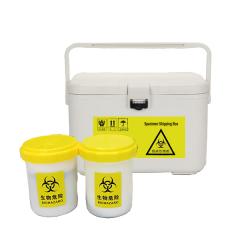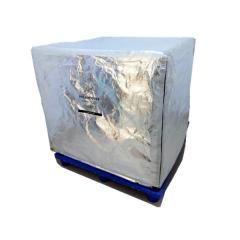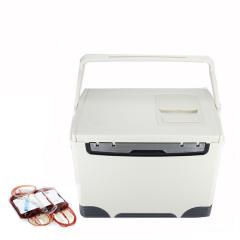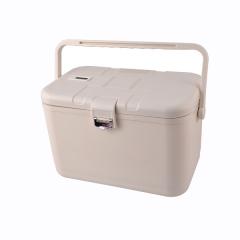In the ever-evolving landscape of global commerce, the cold chain industry stands as a vital cog, ensuring the seamless transportation and preservation of perishable goods from farm to fork. Today, this sector is undergoing a paradigm shift, driven by technological advancements, sustainability initiatives, and a heightened consumer demand for fresh, safe, and ethically sourced products. Here's a glimpse into the revolutionary forces reshaping the cold chain industry.
Embracing Digitalization for Transparency and Efficiency
At the forefront of this transformation lies digitalization. IoT (Internet of Things) sensors, GPS tracking, and blockchain technology are revolutionizing supply chain visibility. These tools enable real-time monitoring of temperature, humidity, and location, ensuring products remain within optimal conditions throughout their journey. Blockchain, in particular, provides an immutable ledger of transactions, enhancing traceability and boosting consumer trust in the authenticity and freshness of goods.
Innovative Packaging Solutions for Prolonged Freshness
Advancements in packaging materials are extending the shelf life of perishables, reducing waste, and enhancing sustainability. Biodegradable and eco-friendly materials, along with smart packaging that regulates temperature and moisture levels, are becoming increasingly popular. Active and intelligent packaging solutions, which incorporate sensors to monitor product quality and indicate spoilage, are also gaining traction, empowering consumers with information and promoting food safety.
Sustainable Cold Chain Solutions for a Greener Future
Sustainability is no longer an option but a necessity. The cold chain industry is actively exploring renewable energy sources like solar and wind power to power its warehouses and transportation networks. Electric and hybrid vehicles are replacing diesel-guzzling trucks, reducing carbon emissions and improving air quality. Additionally, circular economy models are being adopted, where waste is minimized and resources are reused or recycled, fostering a more environmentally friendly ecosystem.
Automation and Robotics for Enhanced Efficiency
Automation and robotics are transforming the way cold chain operations are managed. From automated sorting and packing systems to robotic palletizers and forklifts, these technologies are streamlining processes, reducing labor costs, and minimizing human error. In warehouses, AI-driven inventory management systems optimize storage space and ensure quick retrieval of products, enhancing response times and customer satisfaction.
Customer-Centricity: Personalized and Flexible Services
As consumer preferences diversify, the cold chain industry is adapting to offer more personalized and flexible services. From customized temperature-controlled solutions for delicate items like pharmaceuticals and live seafood to just-in-time delivery models, service providers are focusing on meeting the unique needs of their clients. This customer-centric approach is fueled by data analytics, which provides insights into consumption patterns, enabling businesses to make informed decisions and stay ahead of the curve.
Conclusion
The cold chain industry is at the cusp of a remarkable transformation, driven by a confluence of technological innovations, sustainability imperatives, and evolving consumer demands. By embracing these changes, the sector is not only ensuring the seamless delivery of fresh, safe products but also contributing to a more sustainable and efficient global supply chain. As we move forward, the future of the cold chain industry looks promising, with endless possibilities for growth and improvement.

 italiano
italiano  English
English français
français русский
русский español
español português
português العربية
العربية 日本語
日本語 한국의
한국의 magyar
magyar










